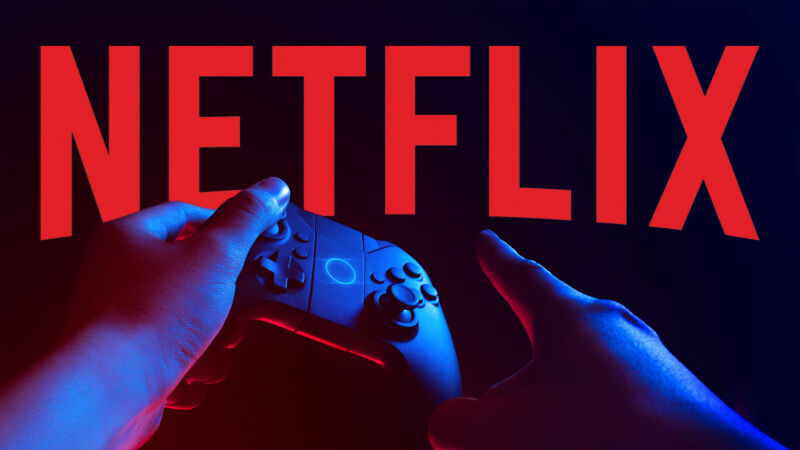Another reason to steal mom’s password —
Follows years-long tiptoe into interactive specials, game-based TV series.
Sam Machkovech
–

Enlarge / Netflix as a gaming publisher: We know it’s happening. But we have many, many questions as to what shape its service will take.
Netflix’s growing fascination with video games will soon explode in the form of a full-fledged game-publishing arm.
While Netflix has yet to post its own announcement about the initiative, the streaming-video provider has confirmed to Ars Technica that it has hired a former EA and Oculus exec to lead a Netflix game-publishing team.
The newly hired exec is Mike Verdu, who most recently worked in developer relations with Facebook’s Oculus VR team (his public profile still says that’s his current job). He has worked in game development and publishing since the early ’90s, and his first studio, Legend Entertainment, was eventually acquired by GT Interactive.
While Netflix has not yet confirmed what shape its video game publishing arm might take, Bloomberg reporter Mark Gurman has suggested that the effort could lead to “video games [as part of] its service in the next year.” The use of “video games” as a descriptor is key, as that differentiates the effort from the “choose your own adventure” TV specials that have become more common on the service since Black Mirror‘s “Bandersnatch” special debuted in 2018.
Does this mean more Belmont action?
In addition, Netflix has spent the past half-decade building a collection of exclusive TV series based on video game licenses, including animated series based on Castlevania, Dota 2, and a critically acclaimed live-action version of The Witcher (whose second season is set to launch later this year). Perhaps Konami’s longtime pause on Castlevania games could change with Netflix as a publishing partner in the mix. (Then again, maybe we should cool our heels and see whether Netflix’s first slate of games revolve around nongaming properties like the wacky dating show Sexy Beasts, the ridiculous cast of Tiger King, or, fingers crossed, the absurd sketch comedy of I Think You Should Leave.)
However, we’ve seen aggressive release timelines dog major new game publishing efforts as recently as this year, with Google loudly shuttering its Stadia game development studios after two years of development and zero releases. Should Netflix stick with a timeline as brief as “the next year,” the streaming giant will likely have to focus on scaled-back releases, if not games that have already been in the works for years before today’s announcement.
And while Netflix currently enjoys massive exposure by way of its popular app, we don’t know if the same app will support streamed games on all existing devices and operating systems, which each come with their own hiccups. Plus, if it requires a constant online connection, is Netflix poised to offer competitive, cloud-based button-tap latency? And will such a service require installation trickery to bypass storefronts’ aggressive rules about individually reviewed and rated games?
Until Netflix clarifies its exact launch strategy and back-end solution, we’re left wondering how it will compete with a growing glut of cloud-based and download-based gaming subscription services.

